Just like the choices we make when purchasing our food, understanding where our coffee comes from, how it was grown, and the conditions under which it was produced is becoming increasingly important. With the rise in organic coffee consumption, today’s coffee lovers are being presented with a myriad of choices, from organic, Fair Trade, to direct trade coffee. Each category represents specific principles of coffee production and has certification programs associated with it.
The coffee industry has seen a significant trend towards greater awareness and concern over ethical and sustainable practices. In our modern, transparent world, consumers now want to know the origins and practices behind the products they purchase, and coffee is no exception. Whether it’s about farming practices or labor conditions, certifications are designed to provide these assurances to the consumer. These assurances range from environmentally friendly farming practices, including organic certification, to the absence of child labor, and a focus on fair prices for producers.
Coffee certifications play a vital role in ensuring ethical and sustainable coffee production. Whether you’re a coffee lover, grower, or roaster, understanding these certifications is essential. Let’s explore the top ten well-known coffee certifications:
1. Rainforest Alliance certification
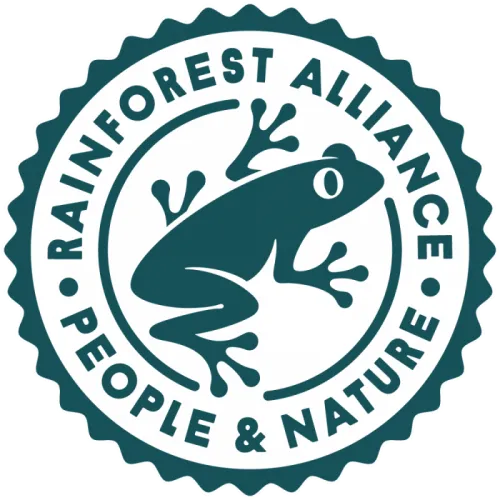
The Rainforest Alliance Certification Program is dedicated to social, economic, and environmental sustainability across key ingredients. By promoting best practices, it aims to protect forests, conserve trees, and uphold the rights of farmworkers. Let’s delve into the details:
- Triple Impact: The Rainforest Alliance certification positively influences forests, climate, human rights, and livelihoods. It achieves this through responsible land management practices and addressing labor issues. Farmers and companies seeking certification must meet specific sustainability standards. Farms ensure fair working conditions, while companies prioritize responsible business practices. Independent auditors verify compliance, emphasizing improved farmer incomes, well-being, and land restoration.
- Coffee Certification: Within the coffee industry, Rainforest Alliance certification emphasizes sustainable land use and conservation in coffee-growing regions. It sets rigorous criteria across three dimensions:
- Environmental: Coffee farms must protect natural resources, wildlife habitats, and biodiversity. Rigorous environmental standards include forest conservation, wildlife habitat preservation, and effective waste management.
- Social: The certification ensures fair treatment of workers and communities. It focuses on safe working conditions and positive community relations, supporting both farmers and the environment.
- Economic: Issued by accredited third-party organizations, Rainforest Alliance coffee certification verifies environmentally, socially, and economically sustainable coffee production. It promotes biodiversity conservation and sustainable livelihoods. Certified coffee farmers maintain detailed records, undergo regular inspections, and actively contribute to a sustainable future.
- Label of Assurance: When you see the Rainforest Alliance label, it signifies adherence to these high standards. Third-party certification organizations verify the certification, and consumer education about sustainability in the coffee industry remains a key focus.
The Rainforest Alliance is a global movement driving positive change by addressing interconnected issues collectively.
Related post: Wholesale Coffee Beans — Ultimate Buyer’s Guide.
2. Fair Trade certification
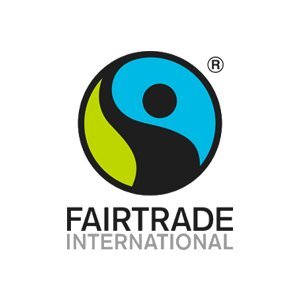
Fair Trade certification is a vital initiative aimed at promoting equitable wages and improved working conditions for coffee farmers and workers in developing countries. Let’s explore the key aspects of this certification:
- Social and Environmental Standards:
- Fair Trade ensures that coffee is produced under specific social and environmental guidelines. These standards encompass:
- Fair Pay: Coffee growers receive fair wages, contributing to their well-being and sustainable livelihoods.
- Safe Working Conditions: Workers benefit from safe and healthy environments.
- Community Development: Fair Trade supports projects such as schools and healthcare facilities within coffee-growing communities.
- Small-scale coffee farmers are guaranteed a minimum price for their coffee. This protection shields them from market price fluctuations and fosters stability.
- Fair Trade ensures that coffee is produced under specific social and environmental guidelines. These standards encompass:
- Direct Linkage and Sustainability:
- By guaranteeing farmers a minimum price, Fair Trade establishes a direct connection between producers and importers.
- It promotes long-term environmental stewardship by encouraging sustainable practices.
- Farmers can retain ownership of their land and invest in quality improvements.
- Fair Trade Certification Process:
- Small-scale producer organizations or hired labor organizations must meet specific requirements.
- Compliance with environmental and social standards is essential.
- Fair Trade combines efforts from Fairtrade International (FLO) and Fair Trade USA.
- The certification includes a Fairtrade Premium for community development projects.
- Notably, organic certification is not a prerequisite.
- Positive Impact Worldwide:
- Fair Trade plays a crucial role in ensuring ethical practices.
- It supports the livelihoods of coffee producers and contributes to the well-being of agricultural communities globally.
3. UTZ Certification
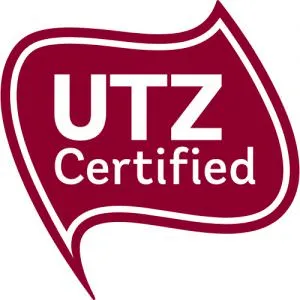
The UTZ certification program is dedicated to establishing a transparent and sustainable supply chain for coffee and other agricultural products. Let’s delve into the details:
- Purpose and Scope:
- UTZ sets rigorous standards for responsible farming, covering efficient resource management, fair labor practices, and environmental conservation.
- As the largest certification program in coffee and cocoa, UTZ strives to make sustainable farming the norm. It encourages good agricultural practices and emphasizes profitable farm management while respecting both people and the planet.
- Collaboration and Commitment:
- Founded in 2002, UTZ collaborates with farmers, companies, and stakeholders across the coffee supply chain.
- The program ensures environmentally and socially responsible coffee production.
- Topics covered include environmental management, social responsibility, and economic viability.
- Training and support are provided to help farms and supply chain companies meet these high standards.
- Certified products proudly bear the UTZ label, signifying a commitment to sustainability.
- Merger with Rainforest Alliance:
- In 2018, the merger between Rainforest Alliance and UTZ resulted in a unified certification program.
- This program focuses on environmental and social sustainability across various crops.
- Standards are based on the Sustainable Agriculture Network (SAN).
- Goals include improving farmers’ livelihoods, protecting natural resources, and promoting biodiversity.
- Look for the Rainforest Alliance Certified seal as an indicator of adherence to these standards.
- Supply Chain Transparency and Farm Management:
- UTZ emphasizes transparency and traceability within the supply chain.
- Efficient farm management is crucial, including practices like soil erosion prevention, responsible chemical use, and habitat protection.
- Certification compliance involves mandatory control points and auditing fees for producers.
- While no minimum price is set, producers can leverage the certification to negotiate better prices for their coffee.
The UTZ certification contributes to a more sustainable and responsible coffee industry.
Related Post: From Beans to Business: Exploring Coffee Machines for Hospitality.
4. Organic certification

Organic coffee is cultivated without synthetic fertilizers, pesticides, or genetically modified organisms (GMOs). Instead, it relies on natural alternatives to maintain crop health and environmental sustainability. Let’s explore the details:
- Certification Standards:
- USDA Organic Certification: To achieve this certification, thorough adherence to organic farming methods is essential. These methods prioritize:
- Soil Health: Organic coffee farms use approved substances and organic practices to maintain soil fertility and health.
- Biodiversity: By avoiding synthetic chemicals, organic farming supports diverse ecosystems.
- Ecological Balance: The focus is on harmony between agriculture and the environment.
- Third-party organizations accredited by government bodies issue organic coffee certifications. These certifications involve strict guidelines covering pesticide and fertilizer avoidance, pest management, wildlife habitat protection, fair labor practices, and meticulous record-keeping.
- USDA Organic Certification: To achieve this certification, thorough adherence to organic farming methods is essential. These methods prioritize:
- Label of Assurance:
- When coffee products bear an organic certification label, it signifies compliance with rigorous organic farming standards.
- Common organic coffee certification programs include:
- USDA Organic: Established by the USDA’s National Organic Program, this certification verifies adherence to U.S. organic standards. Accredited certifying agencies ensure compliance.
- EU Organic and JAS Organic: These programs have specific requirements for certification.
- Producers proudly display these labels to demonstrate their commitment to sustainable practices.
- Financial Impact:
- Fees: The cost of organic certification varies, including annual auditing fees for both producers and buyers.
- Fair Trade Connection: Under Fair Trade contracts, organic coffee producers receive a 15-cent per pound price premium.
- Negotiating Power: Even outside of Fair Trade contracts, organic certification empowers producers to negotiate better prices for their coffee.
Organic certification not only benefits farmers and consumers but also contributes to a healthier planet.
Related post: Exploring 18 Roasted Coffee Bean Varieties & Bean Types.
5. Specialty Coffee Association (SCA) Certified
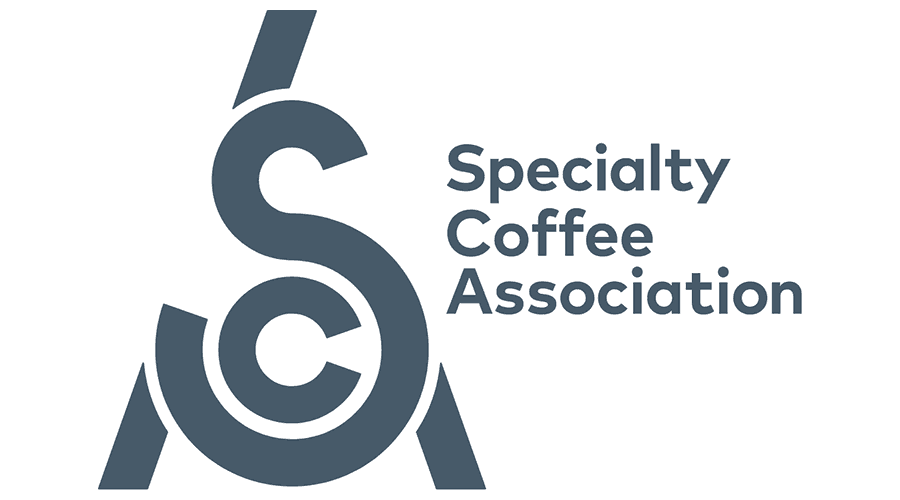
Specialty Coffee Association (SCA) plays a pivotal role in assessing coffee quality. Let’s explore the details:
- Quality Assessment:
- Coffees undergo evaluation based on a 100-point scale developed by the SCA.
- A score of 80 or above designates specialty-grade coffee.
- The SCA, a non-profit organization representing the specialty coffee industry, aims to promote quality and sustainability.
- Certification Programs:
- The SCA offers several certification programs:
- Coffee Skills Program: Covers aspects like coffee tasting, roasting, brewing, and barista skills.
- Certified Home Brewer: For coffee enthusiasts seeking home brewing excellence.
- Coffee Sustainability Program: Focuses on sustainable practices.
- Q Grader Certification: Conducts coffee quality evaluation through cupping and sensory analysis.
- Additionally, the SCA certifies commercial coffee equipment for quality and safety standards.
- The SCA offers several certification programs:
- Education and Excellence:
- These programs provide education, training, and certification opportunities.
- Coffee professionals and enthusiasts benefit from SCA’s commitment to excellence and sustainability.
The SCA certification elevates the specialty coffee industry.
Related post: The True Taste of Specialty Coffee: Your Essential Guide.
6. Shade-grown Certified
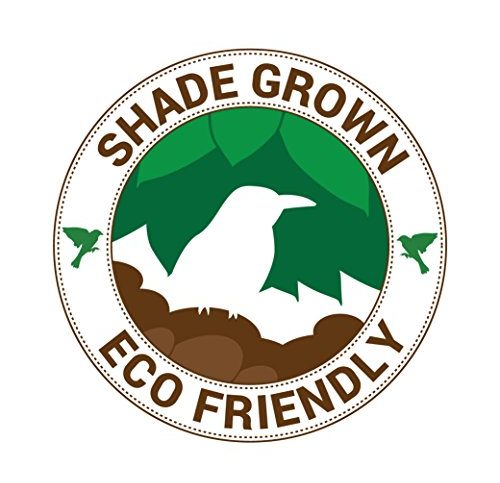
Shade-grown coffee certification verifies that coffee has been cultivated to support biodiversity and forest protection. Let’s explore the details:
- Ecological Balance:
- Under this certification, coffee is typically grown under a canopy of trees. This practice provides essential habitat for wildlife and maintains the ecological balance of the coffee-growing region.
- Third-party organizations, accredited by government bodies or regulatory organizations, issue shade-grown coffee certifications based on comprehensive guidelines.
- Farming Standards:
- Shade-grown coffee farms adhere to specific standards:
- Diverse Forest Canopy: Maintaining a rich mix of tree species is crucial.
- Organic Methods: Synthetic pesticides and fertilizers are avoided in favor of organic farming practices.
- Community Support: Workers and local communities benefit from sustainable practices.
- Detailed Records: Coffee farmers keep meticulous records of their farming practices.
- Shade-grown coffee farms adhere to specific standards:
- Benefits and Impact:
- Shade-grown coffee certification promotes:
- Sustainability: By preserving forests and supporting biodiversity.
- Healthy Ecosystems: These habitats provide shelter for wildlife species.
- Third-Party Verification: The certification label assures compliance with shade-grown standards.
- Shade-grown coffee certification promotes:
Related post: Coffee Bean Storage 101: Keep Your Beans Fresh.
7. Bird-Friendly Certified
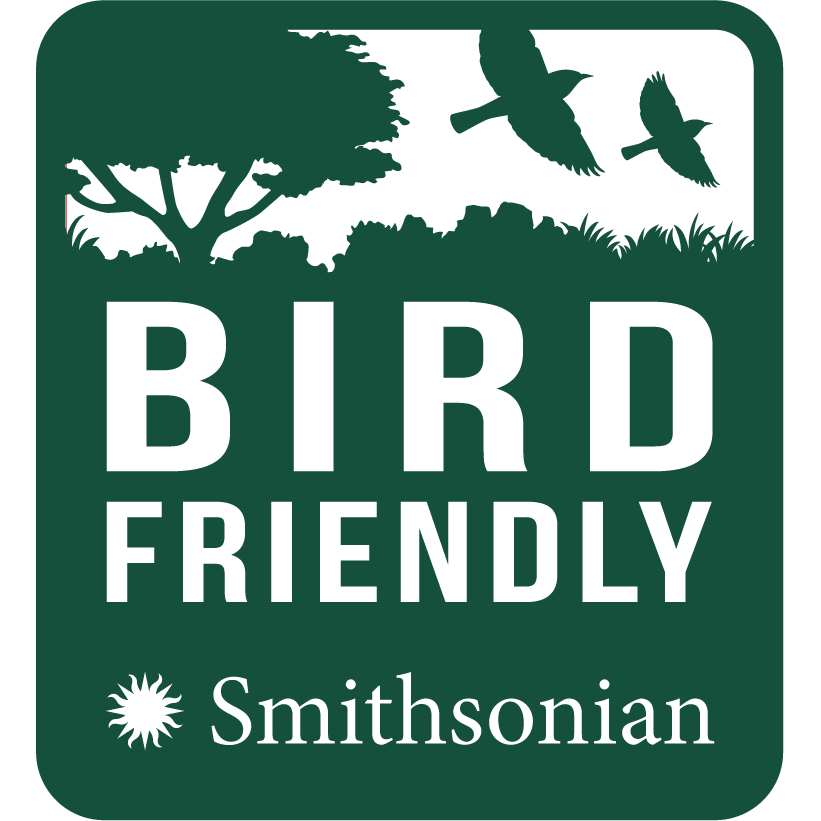
Bird-Friendly Coffee certification, developed by the Smithsonian Migratory Bird Center (SMBC), ensures the preservation of tropical agroforests while providing a healthy haven for migratory birds. Let’s explore the details:
- Conservation Focus:
- This sustainability program centers on bird conservation through sustainable farming practices.
- Bird-Friendly Coffee safeguards critical habitats for our feathered friends.
- Certification Criteria:
- To earn the Bird-Friendly Coffee certification, farms must meet specific criteria:
- Shade Cover: Providing habitat for birds by maintaining shade cover.
- Certified Organic: Adhering to organic farming practices.
- Sustainable Farming: Implementing environmentally friendly methods.
- Third-Party Audits: Farms undergo audits by certified third-party organizations.
- To earn the Bird-Friendly Coffee certification, farms must meet specific criteria:
- Benefits and Impact:
- Bird-Friendly Coffee stands out as the sole certification requiring both shade cover and organic farming practices.
- It benefits bird populations and farmers alike, promoting conservation and sustainability in coffee production.
- Look for the gold Bird-Friendly seal on certified products from countries like the United States, Mexico, Colombia, and Peru.
- Economic Incentives:
- Producers can negotiate better prices with the Bird-Friendly certification, often receiving an additional 5 to 10 cents per pound.
- Importers and roasters contribute nominal fees to support bird conservation research.
8. Direct Trade Certified
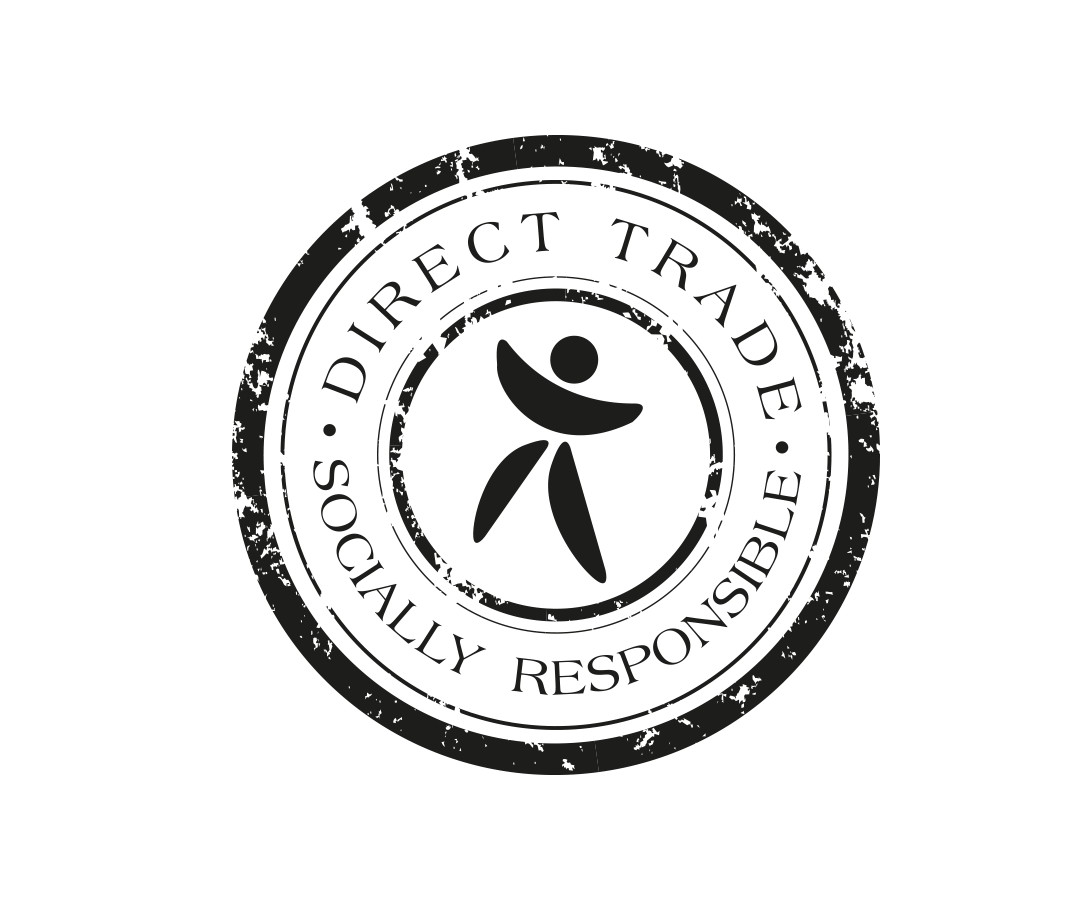
Direct Trade is a model gaining popularity in the coffee industry, revolutionizing the way we connect with our morning brew. Let’s explore the details:
- Breaking Chains, Building Bonds:
- Direct Trade involves direct relationships between buyers and farmers, bypassing traditional supply chains.
- Key benefits include:
- Transparency: Consumers know where their coffee comes from.
- Fair Pricing: Farmers receive equitable compensation.
- Sustainability: Practices that nurture both the environment and communities.
- Beyond Certifications:
- Specialty coffee roasters take it a step further by developing personal relationships with farmers.
- These connections enable:
- Greater Transparency: Traceability from farm to cup.
- Premiums Above Fair Trade: Roasters invest in quality and sustainability.
- Training and Resources: Improving coffee quality and eco-friendly practices.
- Direct Trade Certification:
- Unlike other programs, Direct Trade doesn’t impose rigid standards.
- Instead, it emphasizes:
- Strong Relationships: The heart of the model.
- Aligned Values: Roasters develop sourcing standards based on their principles.
- Small-Scale Farmers: Committed to sustainability and fair labor.
- Quality with Purpose:
- Direct Trade Certified coffee comes at a premium.
- This reflects:
- Higher Quality: Roasters ensure excellence.
- Sustainability Commitment: Supporting responsible production.
- Consumers become empowered advocates, choosing coffee that aligns with their values.
9. Fair for Life
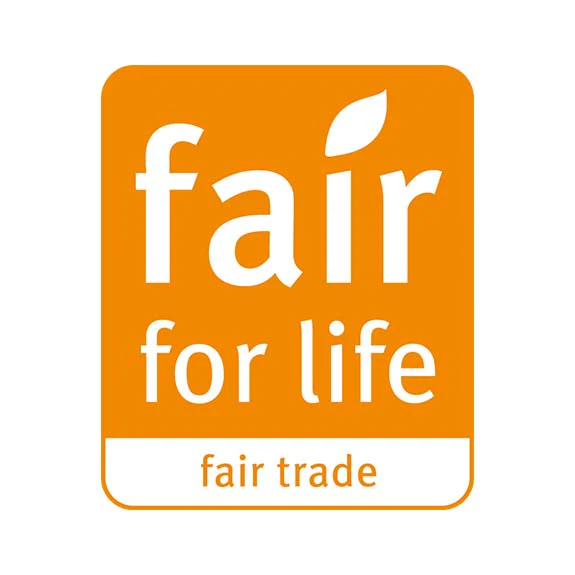
Fair for Life is a certification program that emerged in 2006, jointly developed by the Swiss Bio-Foundation and the IMO Group. Later, it found a new home under the Ecocert Group in 2014. Let’s delve into the details:
- Purpose and Scope:
- Fair for Life ensures fair trade across agriculture, manufacturing, and trade.
- Its mission revolves around:
- Responsible Supply Chains: Transparency and ethical practices.
- Fair Work Conditions: Upholding human rights.
- Environmental Respect: Nurturing our planet.
- Emphasizing Key Points:
- Fair for Life certification focuses on:
- Human Rights: Respectful dialogue with suppliers.
- Biodiversity: Promoting sustainable agricultural practices.
- Local Impact: Strengthening communities.
- Fair Pricing: Ensuring equitable compensation.
- Traceability: From source to product.
- Fair for Life certification focuses on:
- Beyond Typical Certifications:
- Fair for Life stands out by:
- Holistic Approach: Addressing social and environmental responsibility throughout the supply chain.
- Comprehensive Framework: Encouraging positive impact.
- Transparency: Strengthening business practices.
- Human Rights Advocacy: Respecting the dignity of all involved.
- Local Engagement: Building stronger communities.
- Fair for Life stands out by:
- Certification Process:
- Rigorous third-party audits ensure accountability and continuous improvement.
- The label champions resilient supply chains, valuing and safeguarding each link.
- Responsible action secures sales and supplies, benefiting producers, processors, and brand owners.
10. Other Private or Voluntary Initiatives

There are several other private or voluntary initiatives that offer standards for the production of coffee. One such initiative is the Nespresso AAA Sustainable Quality Coffee Program, which focuses on promoting sustainable farming practices and ensuring high-quality coffee production.

Another initiative is the 4C Code of Conduct, which sets marginal standards for corporate coffee production, emphasizing environmental and social responsibilities within the coffee supply chain. These initiatives play a crucial role in encouraging ethical and sustainable practices in the coffee industry.
Related post: Wega Polaris Review: Automatic Espresso Coffee Machine.
